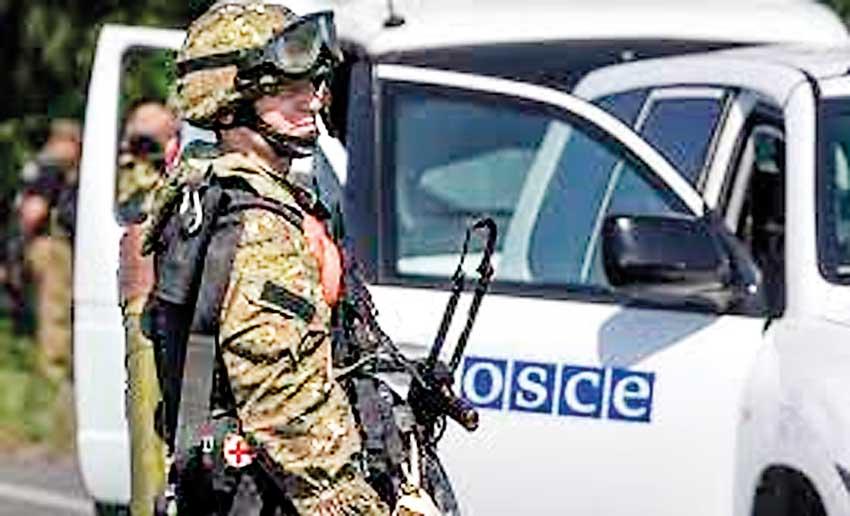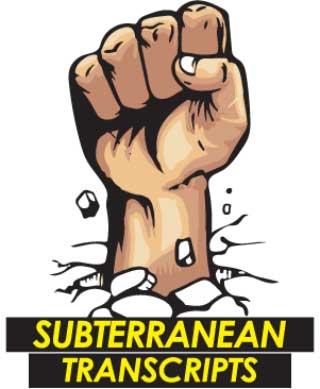Reply To:
Name - Reply Comment

In Donetsk and Luhansk regions, the OSCE Special Monitoring Mission recorded 741 ceasefire violations
As per outcome preferences, there’s selectivity. In the ‘here and now’ the poorer entity is the Ukrainian. No argument there. That’s a big story. It’s still not the entire story though.
 War is about or can be about a lot of things. A common enough reason for war that cuts across territory and time is profit. Those who stand to gain or lose, consequently, almost always locate themselves on this or that side in terms of interests to be achieved or squandered. In other words, ‘interests’ colour the take. That, ladies and gentlemen, is ‘Ukraine Un-frilled.’
War is about or can be about a lot of things. A common enough reason for war that cuts across territory and time is profit. Those who stand to gain or lose, consequently, almost always locate themselves on this or that side in terms of interests to be achieved or squandered. In other words, ‘interests’ colour the take. That, ladies and gentlemen, is ‘Ukraine Un-frilled.’
This is not to say that people need not ‘feel’ for Ukraine and Ukrainians. Those in conflict zones have to endure deprivations, threats and vulnerabilities that others cannot really have any clue about. These are inflated or suppressed as per the interests of the inflators and suppressors. They are, then, preyed upon, prostituted even. We’ve seen a lot of that over the past week or so.
And so we have either the ‘Poor Ukranians’ or the ‘Poor Russian-speakers in parts of Ukraine who don’t want to be part of that country.’
 Typically, again as per outcome preferences, there’s selectivity. In the ‘here and now’ the poorer entity is the Ukrainian. No argument there. That’s a big story. It’s still not the entire story though.
Typically, again as per outcome preferences, there’s selectivity. In the ‘here and now’ the poorer entity is the Ukrainian. No argument there. That’s a big story. It’s still not the entire story though.
Outcome-preference. That’s a key term in all this. It is a term that is never used. ‘Interests’ are certainly mentioned and selectivity allows for these to be posited as logical and moral. Shed of frills, though, they have little to do with people or suffering; they speak instead about prejudices.
Wars take their courses. Predictions (like election results) are almost always, knowingly or unknowingly, about pushing specific agenda. It is not hard to read between the lines.
Take for instance the BBC. The reports at first glance appear to be reportage, but it is in fact heavily editorialised narratives that are tied to interests that are not difficult to identify.
As in all propaganda exercises, there’s cherry-picking of useful quotes, wild extrapolation and a liberal sprinkling of ideological/political condiments — the (mis)information dish needs to be palatable after all. Indeed that’s the Western media in general. It dominates to the point that we don’t really get alternative narratives and not even, say, the Russian Version(s) which could, theoretically at least, allow for close-reading and frill-comparison.
It’s all very interesting. People talk about respecting ‘international boundaries’ almost as though they’re clueless about the history of that part of the world and the ways and occasions in which the maps have changed over the last two millennia and indeed the last century.
Name enemy and you get a blameless, angelic ‘friend,’ never mind crimes of omission and commission that contributed to the current state of affairs. Name enemy, paint him as the villain and make sure that your own villainous history is left out of the narrative — that kind of propaganda abounds.
Who, after all, among those vilifying Putin and Russia, taking the moral high ground and making grand pronouncements of how the world should be ordered, pauses to talk about NATO, its movers and shakers and what they’ve done and got away with over the past few decades?
National boundaries get talked of. Human rights are mentioned. Sanctions were called for. Existentialist angst (of Ukraine and Ukrainians) are pointed out. These are certainly relevant topics that need to be kept on the table. However, the script has a flip side and that side is always kept hidden.
How can one talk of human rights and basic dignities and not talk of Nazism? How can you talk of one country’s anxieties and ignore the worries of another? How can one provoke and if/when the provoked react, strut around as though one was just another innocent bystander?
How can one nation be described as authoritarian and its leader as a tyrant and the authoritarianism, tyranny and unabashed racism of the relevant counterparts be ignored? Indeed, how can such individuals and regimes be hailed as champions of freedom and democracy?
Simple answer: interests. Interests or preferred outcomes, if you will, constitute a palette of innumerable colours. You can paint at will. If you are advantageously located in structures of ‘information’ dissemination your paintings get carried; if not, few will even get to see your depictions and moreover even if they do get some public space, they will be ripped apart, painted over or pooh-poohed.
What’s really happening in Ukraine, does anyone want to know? Here’s a question to ponder: have you heard of the Organisation for Security and Cooperation in Europe (OSCE) Monitoring Mission? Do you know that this outfit, made of 57 participating states, generates an amazing volume of detailed information on conflict zones gathered on a daily basis?
Well, over 40 member states have representatives in the Ukraine monitoring mission and almost all members have a military or diplomatic background. There are 700 monitors, and they have been in Ukraine since 2014. Their job ‘is to patrol both sides of the civil war conflict zone and to record infringements of the ceasefire and de-escalation agreements, bringing these to the attention of the relevant authorities.’ Worth a look-see, what do you say?
Well, who would actually look? Those who want the truth, perhaps. Others? Well, who on earth wants to peruse uncomfortable truths? Who has the strength of character to survey all information, seek verification and corroboration? Certainly not those whose takes are framed by preferred outcomes and prejudices they are fixated about.
History bears upon one and all. And so there’s myopia. There’s hypocrisy. And then there are the overarching edifices of profit and strategic interests. The truth gets squashed and lies or half-truths embroidered on flags that were in a sense also waved when flag-bearers in raucous cheer or look-away silence sanctioned acts which produced the very same depravations, anxieties and vulnerabilities they or those they grieve for, suffer(ed).
So we will hear the jeers and cheers. Whatever works for whoever, should we say/think? That’s one way of thinking about it, true, but here’s a thought from a Turkish academic that might offer a pathway to a different kind of engagement:
“We need an internationalism that does not reflexively resort to waving the flag of a nation-state--even when under attack--as the primary form of expressing solidarity. We need to think beyond the nation-state form in situating “our” side in war and peace alike.’ That’s from Ayça Çubukçu, Associate Professor & Co-Director, LSE Human Rights, London School of Economics.
[email protected].
www.malindawords.blogspot.com